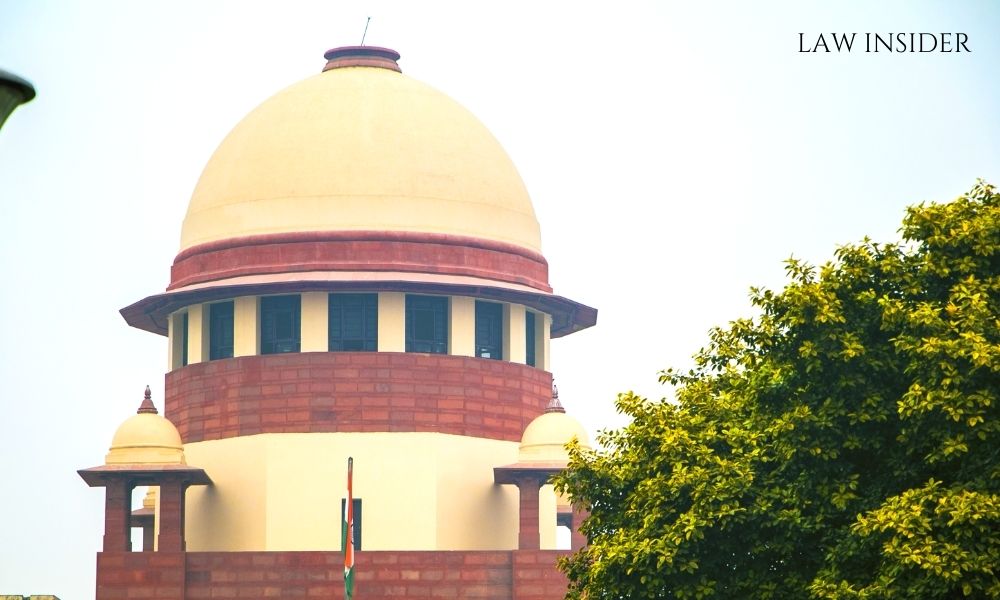LI Network
Published on: October 6, 2023 at 18:57 IST
The Supreme Court of India recently reaffirmed the authority of Municipal Councils to impose terminal taxes within Scheduled Areas, dismissing an appeal filed by a coal mining company challenging the imposition of such taxes in Madhya Pradesh.
The Court emphasized that Paragraph 5(1) of the Fifth Schedule of the Constitution grants the Governor the power to either direct that parliamentary or state laws do not apply to Scheduled Areas or that they apply with specific exceptions and modifications.
In this case, the Court found that no such notification had been issued by the Governor. Therefore, the Municipal Council had the authority to levy taxes as per the state’s legislation.
The Court clarified, “The consequence of paragraph 5(1) of the Fifth Schedule is that it enables the Governor to direct either that a parliamentary or state law shall not apply to a Scheduled Area in the State or that it would apply subject to exceptions and modifications.
Therefore, unless a notification has been issued by the Governor indicating that (I) a parliamentary or state law shall have no application to the Scheduled Area; or (ii) the parliamentary or state legislation would apply subject to exceptions or modifications, there would be no hindrance in the application of the law to the State.”
A three-judge Supreme Court bench comprising Chief Justice DY Chandrachud, Justice JB Pardiwala, and Justice Manoj Mishra heard the appeal against a judgment by the division bench of the Madhya Pradesh High Court, which had rejected the appellant’s challenge to the imposition of terminal tax by the Municipal Council.
The case originated from an appeal filed by a company owning coal mines, Jamuna & Kotma Colliery, contesting the levy of terminal tax by the Municipal Council.
The High Court had rejected the appellant’s plea on the grounds that the land where coal mining took place fell within the jurisdiction of the Municipal Council, which had the legislative competence to levy terminal tax, and no exceptions had been notified under the Constitution.
Dissatisfied with this judgment, the appellant approached the Supreme Court.
Regarding the levy of terminal tax by the municipality, it is essential to note that the Terminal Tax (Assessment and Collection) on the Goods Exported from Madhya Pradesh Municipal Limits Rules 1996 was framed under the statutory powers conferred by the Madhya Pradesh Municipal Corporation Act 1956 and the Madhya Pradesh Municipalities Act 1961.
Article 244 of the Constitution provides for the administration and control of Scheduled Areas and Scheduled Tribes. Part IXA, dealing with Municipalities, was introduced by the 74th Amendment. Article 243-ZC(1) specifies that Part IXA does not apply to the Scheduled Areas mentioned in Article 244.
Article 243-X grants the power to impose taxes by and funds of the Municipalities, stating, “The Legislature of a State may, by law-(a) authorize a Municipality to levy, collect, and appropriate such taxes, duties, tolls, and fees in accordance with such procedure and subject to such limits… as may be specified in the law.”
During the proceedings, Mr. N Venkataraman, Additional Solicitor General representing the appellant, argued that “Article 243X empowers the Legislature of a State by law to authorize Municipalities to levy, collect, and appropriate taxes, duties, tolls, and fees. Since Part IXA does not apply to Scheduled Areas, the power under Article 243X is not available in relation to a Scheduled Area. The provisions of the two municipal laws would have no application; hence, the terminal tax levy was ultra vires.”
The Court clarified that the inapplicability of Article 243X, which empowers State Legislatures to authorize Municipalities to levy taxes, does not diminish the State Legislature’s authority to enact legislation for the entire State.
The Court stated, “The impact of Article 243-ZC is that Part IXA has no application to a Scheduled Area. The inapplicability of Article 243X did not denude the state legislature to enact legislation for the State.”
In alignment with the High Court’s decision and considering that no notification had been provided to substantiate the claim for non-application of the state law, the Supreme Court dismissed the appeal.
Case Title: South Eastern Coalfields Ltd V. State of MP

